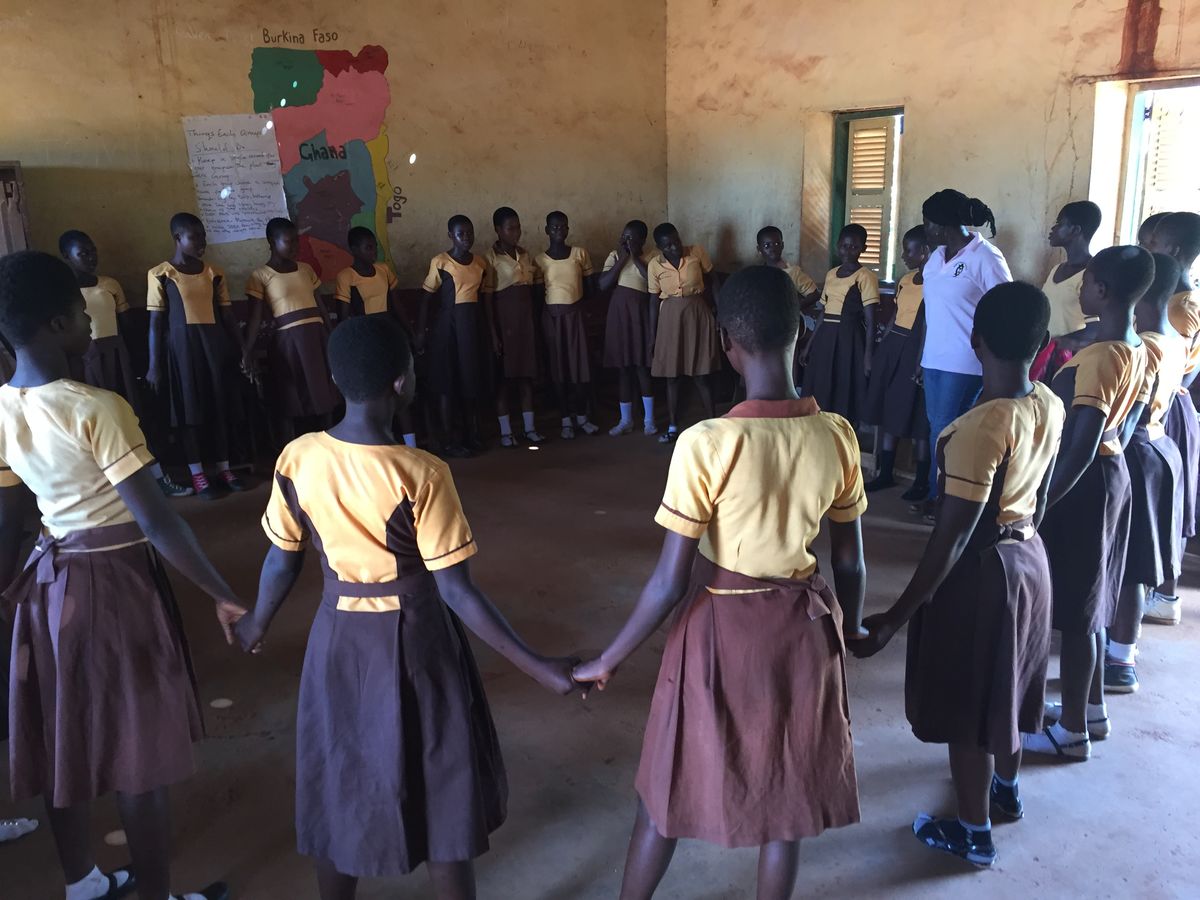How the World Talks About Periods, and Why It Matters

There are endless ways to explain, describe ― or avoid ― the topic of periods.
The period tracking app Clue recently worked with the International Women’s Health Coalition to learn more about global perceptions of periods by looking at the language used to talk about them. Their findings revealed at least 5,000 euphemisms for periods in more than 190 countries. And while euphemisms may sometimes sound funny or silly, they also serve to indicate a society’s perspectives, biases, and taboos. Implicit cultural biases reveal themselves in how we talk about menstruation, and it’s time to be clear about that talk and its implication for women and girls.
In civilizations where periods are described with vague euphemism — or not at all — the implication is that this natural process is something to be avoided in polite conversation or, worse, too shameful to mention. The consequences for women range from embarrassment to shame to outright shunning, and the results can have negative consequences to a woman’s overall hygiene and health.
What are some of these euphemisms and what do they signify? What happens when we pay attention to language and encourage words that express acceptance, directness, and even good humor? All questions worth considering – for the good of global women and girls.
When We Don’t Talk About Them
A culture’s refusal to directly define or acknowledge menstruation may signal an unspoken belief that the process is too intimate for discussion, and should be hidden away — even if such silence poses risks to a society’s women and girls.
In Tamil, a language commonly spoken in southern India and parts of Sri Lanka, menstruation is described as maadhavilakku, with the root word vilakku, meaning “prohibition, separation.” Ahila Devi, program director at our India-based Consortium member DHAN Foundation , says the term means, “girls have to be kept alone during those periods.” In other words, the term for menstruation does not actually describe the biological process itself, but rather a period of exile.
India’s broader culture reflects this mindset. As the India-born columnist Ira Trivedi wrote in a recent CNN article , women are conditioned never to speak about their periods, so the men in their lives don’t know the first thing about menstruation. “I know so many married men, who live with wives, mothers and daughters, yet have never seen a sanitary pad in their lives,” she writes. “Ever since we were little girls, we have been taught to be embarrassed about our periods, to never speak about our monthly ‘curse,’ to hide sanitary pads up our sleeves.”
In other countries, avoidance leads to everyday oppression. The day-to-day lives of Nepali women are dictated by one word: Chhaupadi. Derived from two Hindu words (chau, meaning menstruation, and padi, meaning women),chhaupadi is a traditional practice that forces menstruating women into huts each month during their periods out of the belief that they are impure and untouchable. The term’s cultural ramifications in Nepal, writes NIH researcher Hannah Robinson , means that boys at a local school were emboldened by their culture to throw stones at menstruating girls, “This is the kind of gender-based violence in Nepal that is learned and accepted. The stigma surrounding menstruation creates a culture of fear and rejection that translates directly into other aspects of life.”
The dangers of chhaupadi were highlighted recently in news coverage of a Nepali teenager who died from a snakebite suffered while secluded in her uncle’s menstrual shed. Words create reality.
Reclaiming the Power of Words
Other parts of the world are stepping away from negative language around periods, choosing to speak about them more directly, colorfully, and even humorously.
Germans may talk about “strawberry week,” while in France it may be “ketchup week” or “the little clown with a bloody nose.” In the United Kingdom (and United States), menstruation frequently gets anthropomorphized into Aunt Flo or Bloody Mary, or simply The Blob. Kenya and Ghana — homes to two of our Consortium members — also have colorful ways of talking about periods, including “I’ve gone to the moon,” “she has broken her hand,” and, perhaps most amusingly, “she has killed an elephant.”
The humorous turn of phrase indicates that people are becoming comfortable enough in talking about periods to make a joke. And such jokes, and more open conversations about a once-taboo subject, mean progress for women and girls.
There is still a very long way to go. But at WomenStrong International, we are seeing positive change through our work in Ghana and Kenya. According to Abenaa Akuamoa-Boateng, Director of Women’s Health to Wealth in Ghana, the phrase “she’s killed an elephant” refers to the monumental accomplishment of menstruation. “It means she’s going to bring forth children,” Abenaa explains. “She’s done the utmost.”
Changing attitudes are reflected in changing policies. In Kenya, for example, the President Uhuru Muigai Kenyatta recently signed an act requiring the government to provide quality period supplies in sufficient numbers to cover every schoolgirl in the country. The act was partially the result of the tireless work of organizations like ZanaAfrica Foundation that brought to light issues around the lack of menstrual supplies forcing impoverished girls to miss school.
We sat down recently with project directors from our Consortium member sites and asked them to tell us how periods are discussed in their home countries. Here’s what we heard.

